IAA #CommunityStars is a virtual event aimed to help independent retailers tackle new challenges day-to-day, like retail crime, ongoing availability issues, rising costs and changing consumer demand. #CommunityStars also helps retailers develop their business and provide for their customers.
In this month’s session, Samantha Gunston, head of events at Newtrade Media was joined by Samantha Coldbeck, owner of Wharfedale Premier in Hull.
“Wharfedale Premier has been a family-run business since 1977 and my partner, Mark, and I bought the store from my parents in 2018,” Sam explains. “It’s a 1,500sq ft store with a full food to go and convenience store offering.”
Samantha and Mark have served hot food to go since 1990 and are always looking for ways to improve the business by ensuring they retail responsibly and get involved in the community.
Wharfedale Premier was recently named in the Top 100 independent news and convenience shops in the UK and was recognised as an IAA 2020/21 Category Star for Responsible Retailing last July. Samantha and Mark stood out after launching a city initiative where CCTV footage is shared with each retailer to help combat retail crime, as well as building a strong relationship with PCSOs and the police and crime commissioner. To further combat retail crime, Samantha and Mark trained their team on recognising anti-social behaviour and buddied up confident staff with those less so to help build this up.
Here are 10 ways Samantha is improving her business you can learn from.
Handling unexpected challenges
“We saw a massive uptake during the pandemic, and we had to reduce the store’s hours just to keep up with the higher footfall,” Samantha explains. “We went from 5:30am-10:30pm to 7am-7pm.”
Samantha and Mark also kept in contact with their community throughout each lockdown by extending their social media reach and constantly asking their customers if they were okay.
“We offered free delivery and asked them if they needed help, so it was carrying on the outreach for our customers when a lot of people felt isolated.
“Sometimes we were the only people that customer saw that day, so it’s always been really important for us to make that connection with our customers,” Samantha adds.
The retailers make sure to train staff to offer the same customer experience and engaging with them on a personal level.
“It’s almost building a friendship where customers come in and staff can remember their names, their partners’ names and their families. It’s part of community retailing that has been invaluable.”
Dealing with rising costs
The rise of inflation is undeniable, and Samantha says her biggest concentration is margins and buying strategically.
“Price-marking is crucially important to our business,” Samantha says. “We’re in a quite socially and financially challenged area and it’s important for us to offer price-marked packs (PMP) to our customers.
“But often with PMPs, you’ll see a drop in margin.”
Samantha recommends talking to suppliers and manufacturers to help them realise how crucial margin is to independent retailers, especially now following rising costs.
“If we can’t get those increased margins, we’ll unfortunately have to look at delisting products that aren’t supporting independent retailers because it’s crucial we don’t give stuff away anymore,” says Samantha.
“When it comes to the essentials, like milk or bread, we’ve got to be strong on price – but our margins have to stay high in comparison.
“We’re currently investing time in our margins and making sure we’re looking at where we’re making money, which is most important thing we’re doing, especially with increasing overhead costs.”
Enjoy what you do
“Enjoy what you do and have a strong team working with you because independent retail can be quite a lonely business,” explains Samantha.
“But if you are on your own, there’s a fantastic network of other retailers. Even customers can offer you great ideas to improve your business.”
Samantha also recommends building your communication and relationship with suppliers, but above all enjoy your job. “We’re trading in the community, we have a lot of friends in the community and it’s great they continue to shop with us.
“The best we can then offer is a smile and a welcoming approach to really appreciate them that they’re choosing us over our competitors.”
Combatting retail crime
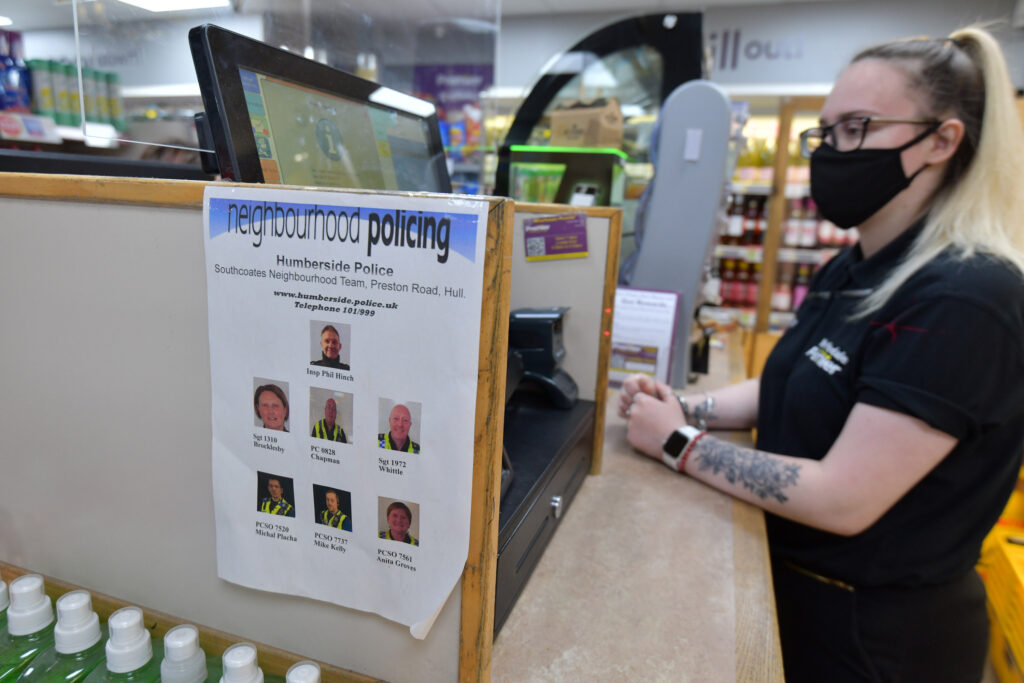
“We have a lot of crime in the area. A lot of it is quite low level and small, but small amounts add up. If you have one person going around several businesses and stealing £20-30 worth of goods each time, it becomes a problem,” Samantha explains.
Samantha regularly checks in with retailers in the area, specifically independents, and says helping each other out is vital to tackling crime. “If we’ve got a shoplifter coming in our shop, we want other retailers to know about it and share the CCTV with them.”
Samantha has set up a WhatsApp group with retailers in the immediate area and reached out to her local police and crime commissioner to report offences.
“Quite often, the local police and community officers will come in and buy a coffee and chat with us for five minutes. That’s invaluable to us because they’ll tell us of any problems and we can share any CCTV with them we haven’t already reported,” Samantha explains.
“The ones we don’t report is usually theft from younger people who are starting to find their feet and think they can get away with shoplifting.
“It’s sometimes quite beneficial to have the local officers come round so they can pop round their school or their house and have a quiet word before it gets out of hand.”
Samantha also places images of any offenders around the store so staff are aware and can keep a look out for them. As a final step to combatting retail crime, Samantha says to get in touch with your local police and crime commissioner.
“Sometimes it’s too much of a big job for the police to investigate things seen as low-level crime, but by working with the police and striking up that working relationship, they almost can’t ignore you.
“By working with other retailers you’re almost creating a network the police can work with.”
Pushing the boundaries and fighting for change will also help combat crime. For example, Samantha found out about a scheme in Hull that was limited to the town centre and challenged this with the local authorities.
“I suggested extending the scheme to our district and make sure other retailers join in and provide information rather than concentrating on one area.
“When you’re told no, look for alternatives that will benefit your business rather than accepting it. Sometimes it’s worth fighting and getting the message across,” Samantha says.
“Being vocal in the trade press and speaking to journalists about it will help, as will reporting it and getting a crime reference number. It will become a statistic, so eventually change will happen.”
Reaching the Police Crime Commissioner
“We get police and crime commissioners to take notice of us through Twitter. We also use it to communicate with other services, reps and suppliers.
“Follow your local police station on Twitter, too, where you’re able to direct message them any issues,” explains Samantha.
If the local police station isn’t on Twitter, Samantha suggests checking Google to find out the best contact info, including an email address.
“You can then approach them as a group of retailers or quite often, they’ll have surgeries or zoom calls. You can also get involved in council meetings to bring awareness to the issues retailers and customers face.
“The police want retailers involved because they’re the eyes and ears of the community.”
How we support our staff
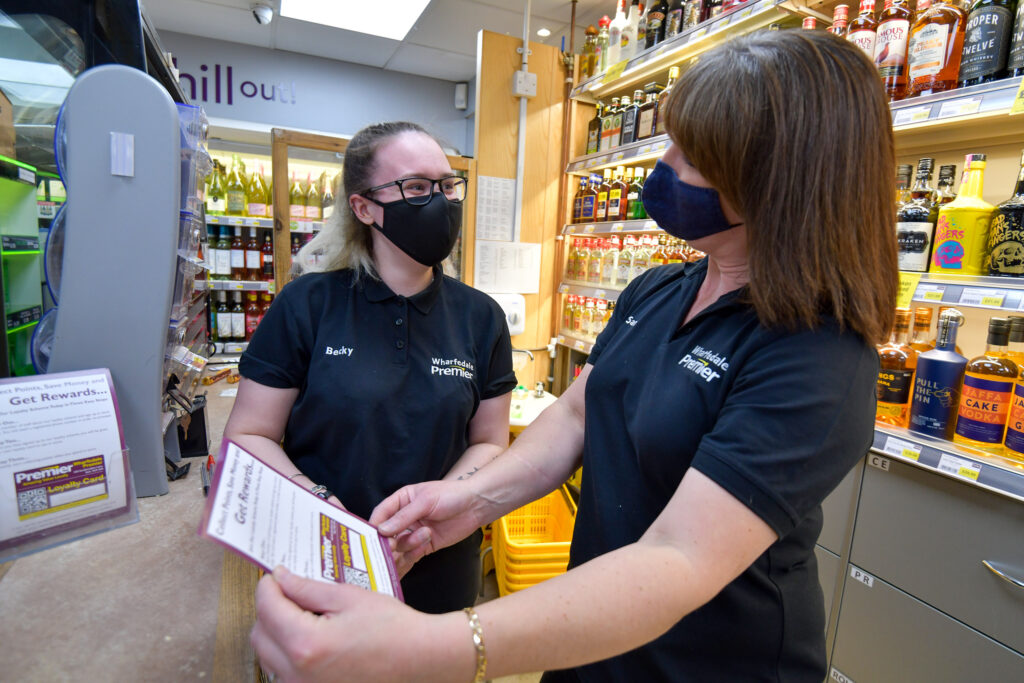
“We realised a lot of our staff were struggling, especially during lockdown. We managed to retain staff throughout and that’s because we checked in with them and talked to them regularly,” Samantha explains.
Samantha had regular one-to-ones with her team that were struggling and made note of who were confident and less confident. Samantha then teamed them up to help increase their confidence.
“Having that mix really benefited everyone because those less confident had a voice from the more confident members of the team. It balanced the shop.
“As busy as we were, it was worth investing the time with staff just to constantly check in with them and listen to them and their needs.”
Looking after her team’s mental health is important to Samantha and the smooth running of her store. “People need to know we’re here for them, whether it’s staff or customers,” Samantha says. “We’re not just here to sell sugar, bread, and milk. We’re there to have a chat if someone needs it.”
Retailing responsibly
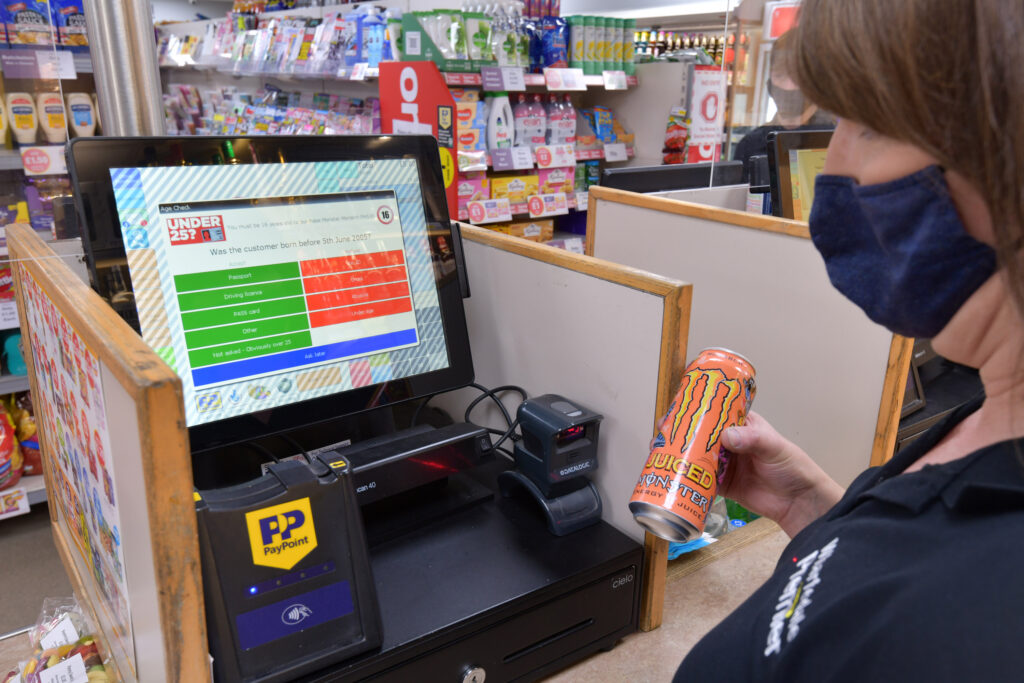
Following the contactless payment increase up to £100 last year, Samantha had to deal with some challenges.
To combat it, Samantha ensured high value items, like spirits, were kept behind the till and staff no longer accepted signatures on receipts.
“We were struck quite heavily by card fraud. If someone keys a 16-digit number in, the till automatically prints out a receipt for the customer to sign and staff are aware this could be fraudulent.
“We communicated this – and the challenges it possessed – to the staff, making them aware of the challenges we faced now contactless has increased,” Samantha explains.
Samantha recognises the new £100 limit is convenient, but it leaves independent retailers at a disadvantage. “The banks are aware though as we’ve noticed shoppers need to use their four-digit pin more, rather than constantly tapping their contactless card.
“The industry is slowly starting to change back to a little bit more caution but talking to the staff about any issues is key.”
Samantha’s biggest advice to retailing responsibly though is chatting to people, whether it’s retailers, customers or the police. “If you’re new to retail, it can feel overwhelming. Start your own network, chat to people. I will guarantee there’s other retailers in the area experiencing similar problems.
“Also, get involved in the community. Sponsor the local football team, even if you can only afford to donate a few cases of water, it will help,” Samantha adds. “Your name will be recognised and will help build that community engagement.”
Educate your community
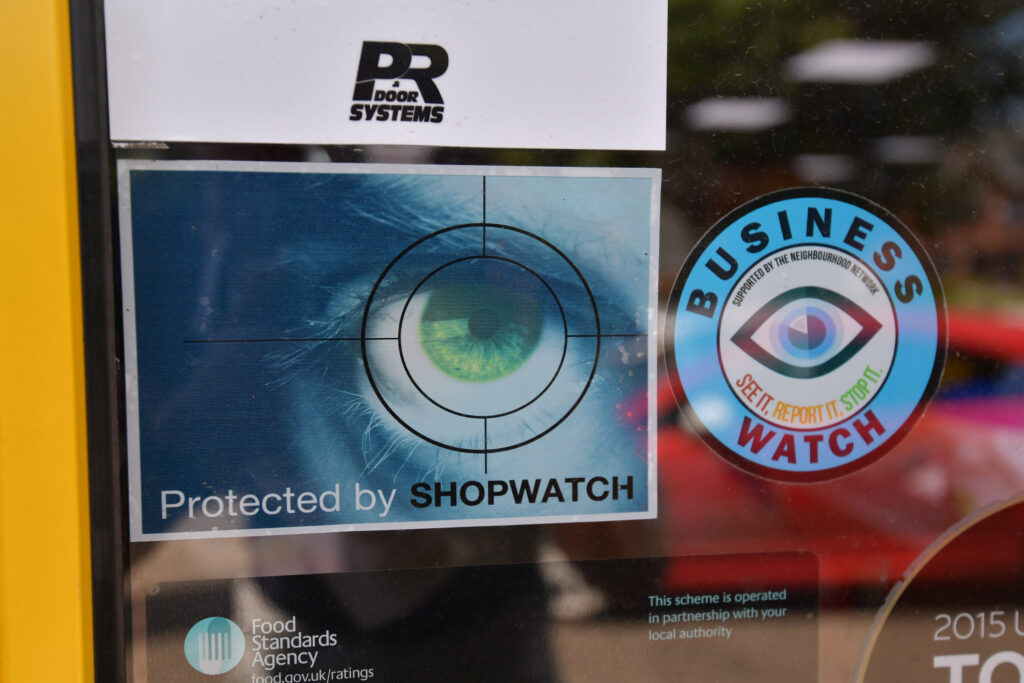
Proxy purchasing impacts every store and in addition to signs around the store, Samantha shares CCTV footage with staff to tackle this.
“We’ve also got a camera on the street that shows when any underage people are hanging around so staff know to ask them to move along as quickly as possible,” says Samantha.
“But we also make sure we’re talking to the nearby schools, too.”
Samantha and her team regularly host assemblies, including when pupils from primary school enter the senior school.
“These students are getting a lot more freedom from their parents and making their own way to school. When we stand in an assembly and talk to those kids, explain who we are and set those boundaries, they’re great with us.
“Being active in the community is important to deterring proxy purchases and having the open dialogue with teachers and parents will help, too.”
What the IAA means to us
In 2015, Wharfedale Premier was named Overall Best Shop in addition to being recognised as a Category Star since then, including for Responsible Retailing.
The biggest takeaway for Samantha from being part of the IAA is the friends and relationships she has built. She says: “I’ve not only become friends with retailers who are part of it each year, but it’s great to see the new retailers join, too.
“We don’t see each other as competitors either and everyone is open to offering good advice. We also all stay in touch year after year, which is great.”
When recognised as Category Star for Responsible Retailing, Samantha shared the news on social media for her customers to celebrate with the store.
“We congratulate staff and thank customers for their involvement, and we use all the fantastic freebies we get, like the shopping bags and badges and give them to customers,” Samantha says.
“Doing this ensures we’re giving back to customers in some ways, to say we really appreciate everything they do.”
When asked why Samantha continues to benchmark, she says: “Staff love it and it makes them look at their department and question what we aren’t doing and why.
“It’s almost a tick sheet for them and it gives us the opportunity to go through benchmarking and find new ideas. It helps you look at your store in a different way.”
An example of applying this ethos is Samantha and her team noticed while they focused on seasonal goods, they didn’t focus as much on in-store display. “Now we added that in and the store changes slightly from season to season.”
Why should you take part in the IAA?
“We joined the IAA after customers would come in and say what a fantastic shop we had and sometimes we didn’t realise that,” explains Samantha.
“Retailers need to challenge themselves and invest in their store.”
Challenging could span from improving the business to investing in staff development and Samantha suggests if you have a strong team, to get involved with the IAA. “You will be rewarded, and your team will get the recognition they deserve.
“The ones that look at their store and think it’s not good enough, the IAA will give you those tools to be able to improve the store and push it forwards. For any retailer, wherever they are at in their journey, the IAA will help. It’s a win win.”



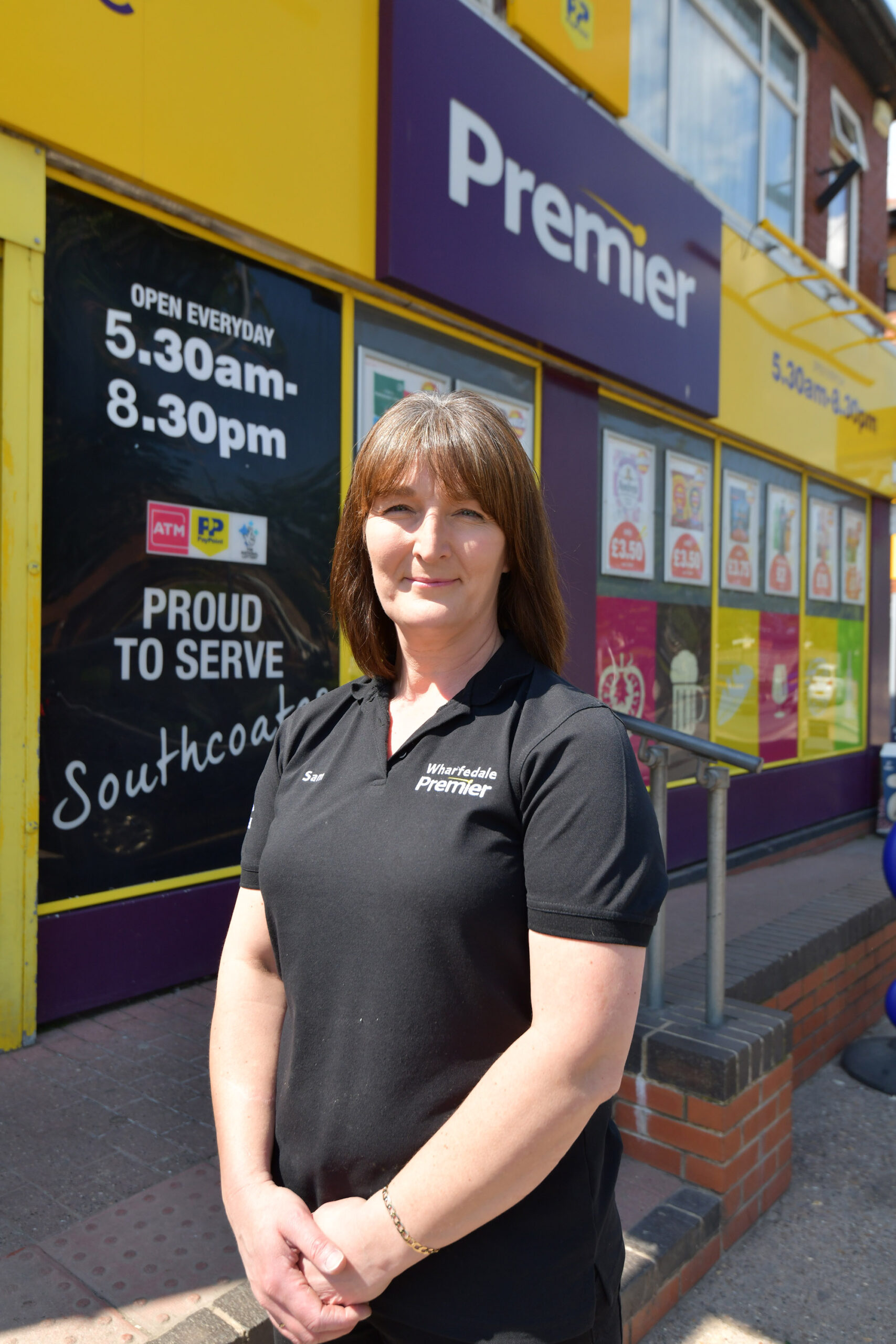

Comments
This article doesn't have any comments yet, be the first!